Moto G7 Plus review: Motorola has made another budget superstar
Very cheap but very impressive, the G7 Plus ticks a lot of boxes

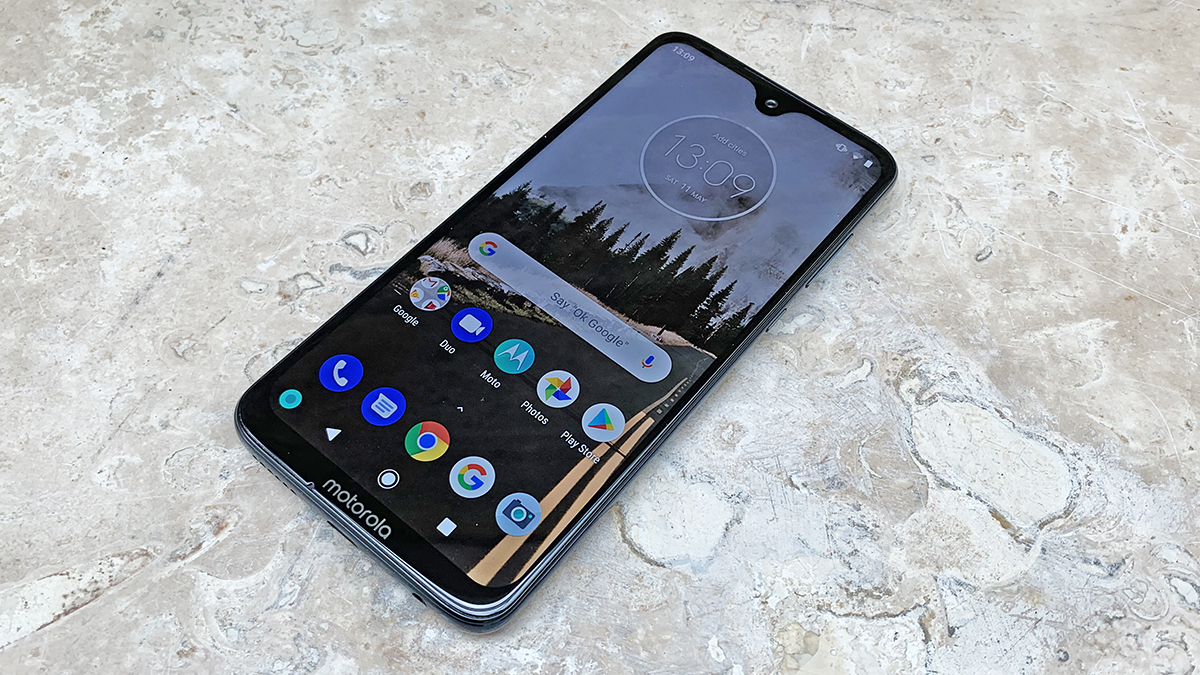
Motorola (or rather Lenovo) has done it again: the G7 Plus continues the G series tradition of offering some very decent specs and features at a very low price. If you don't want to go above £300 for your next smartphone buy, then the Moto G7 Plus is an excellent choice.
-
+
Very competitive price
-
+
Decent camera performance
-
+
Specs won't let you down
-
+
Comes with a free case
-
-
So-so battery life
-
-
Display isn't the best
Why you can trust T3

Moto G7 Plus key specs
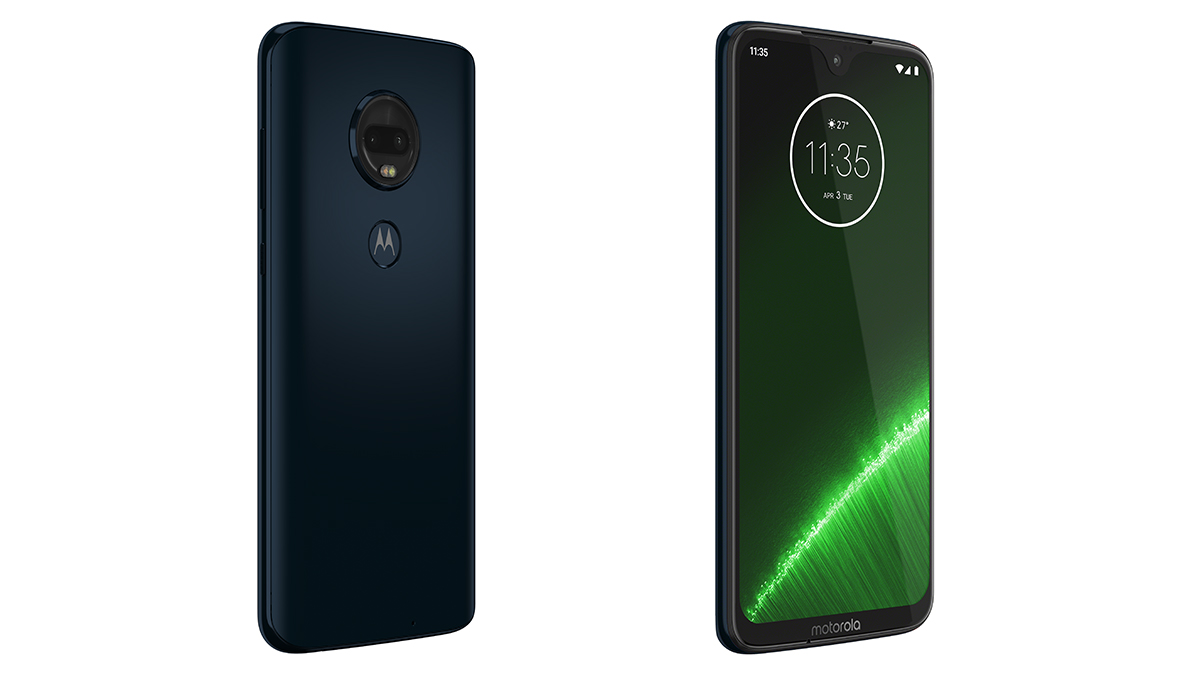
Dimensions: 157 x 75.3 x 8.3 mm
Weight: 176 g
Screen: 6.2-inch, 19:9, 398 ppi (1,080 x 2,270)
CPU: Snapdragon 636
RAM: 4GB
Storage: 64GB
Battery: 3,000 mAh
Cameras: 16MP + 5MP rear, 12MP front
OS: Android 9.0 Pie
Welcome to T3's Motorola Moto G7 Plus review. In recent years, the Lenovo-owned Motorola brand has become synonymous with value: mid-range and budget phones that aren't the best looking or most powerful handsets on the market, but that are very good for the price.
Now Motorola has followed up the Moto G6 phones with the Moto G7 range. There are four phones in total, and the Moto G7 Plus is the most advanced of the bunch (though it shares its physical size with two of the three other handsets).
- Moto G7 vs G7 Play vs G7 Power vs G7 Plus
- The best Android phones on the market today
We've written in detail here about the differences between the four G7 phones, but in summary, this is the premium model. It has a slightly better camera than the standard G7, and a slightly faster processor, although the two phones are otherwise very similar.
Has Motorola pulled off its usual trick of finding the sweet spot between price and performance at the more affordable end of the market? Is this a serious contender for someone looking to get a lot of phone for not much money? We spent a few days in the company of the Moto G7 Plus to find out.
Moto G7 Plus: price and availability
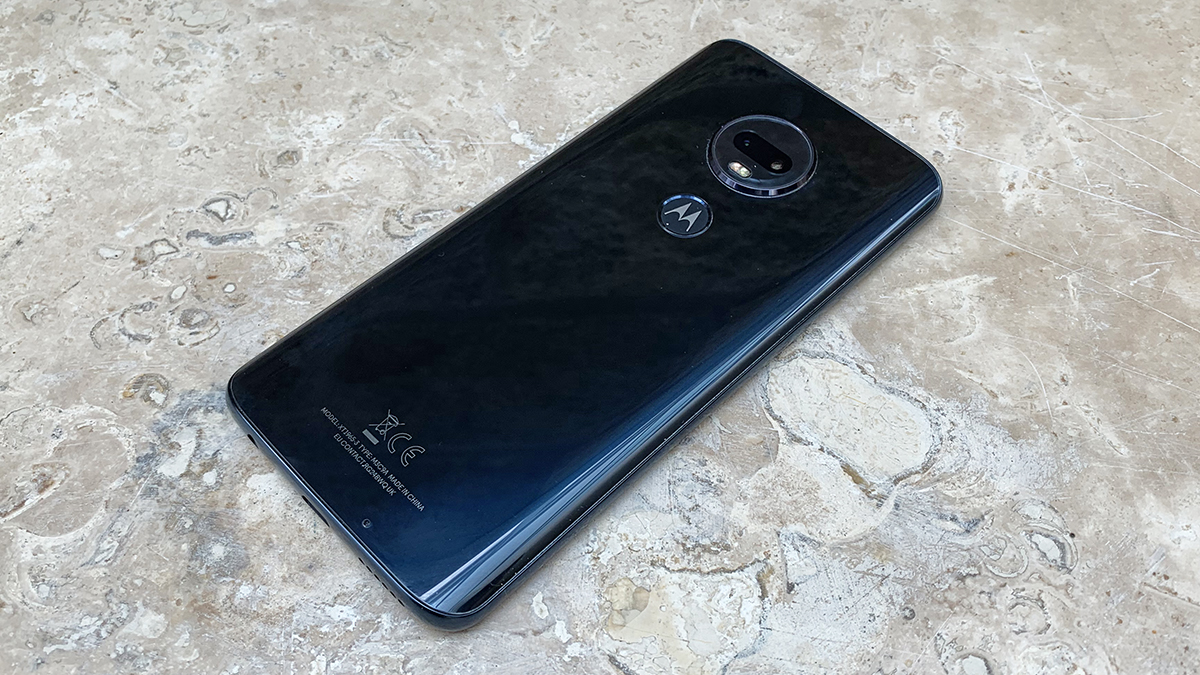
The Moto G7 Plus is on sale now from many of the usual high street and online retailers, including Carphone Warehouse, Amazon, EE, Clove and Currys PC World. You can pick up the phone on a contract, or pay everything up front and bring your own SIM.
Check the online listings for the latest prices, but we're seeing the Moto G7 Plus for as low as £269.99 SIM-free. Monthly prices with EE range start from £23 a month and £50 up front, with gets you 500MB of data.
Whichever way you slice it, this is a very affordable phone, when you think that some flagship models can cost more than four times as much.
Get all the latest news, reviews, deals and buying guides on gorgeous tech, home and active products from the T3 experts
Moto G7 Plus review: design and display
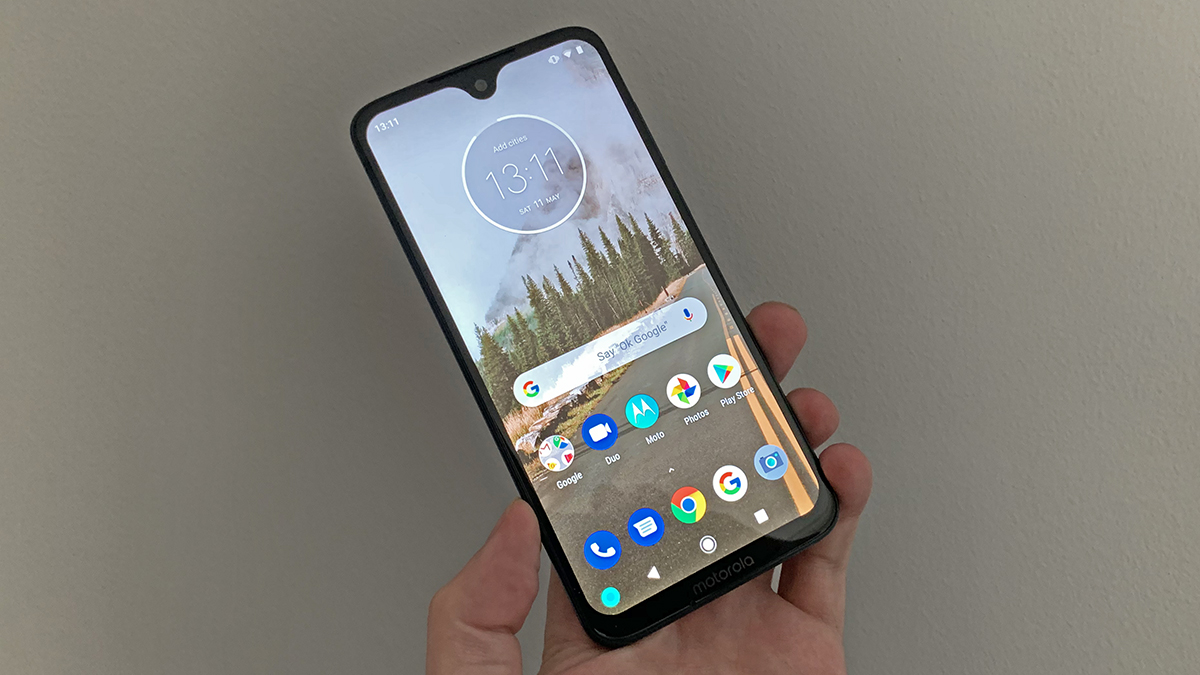
The Moto G7 Plus comes rocking a 6.2-inch, 1,080 x 2,270 pixel display (which despite the Plus name, is the same size and resolution as the standard G7). It's bright, and easy to read, though does look slightly washed out at maximum brightness.
Motorola has gone for an LCD rather than an OLED panel here – with cost no doubt one of the reasons – and you don't get quite the same deepness and richness as you might on, say, a premium Samsung flagship. That said, the screen is perfectly usable, and decent for watching movies, browsing the web, or sending messages.
Text and shapes are clear and crisp, colours are well reproduced, and the tall 19:9 aspect ratio that a lot of handsets go for these days means there's plenty of scrolling room for your social media feeds and favourite websites.
In the hand, the phone feels lightweight and a bit on the plasticky side (though there's no plastic here – just aluminium and glass): you can tell this isn't a £1,000 phone when you're holding it, but that's not to say it feels shoddy or badly put together. It just feels... cheaper. We should add you get a simple plastic case included with the phone too, and while we didn't use it a lot, it's nice to see a free accessory included.
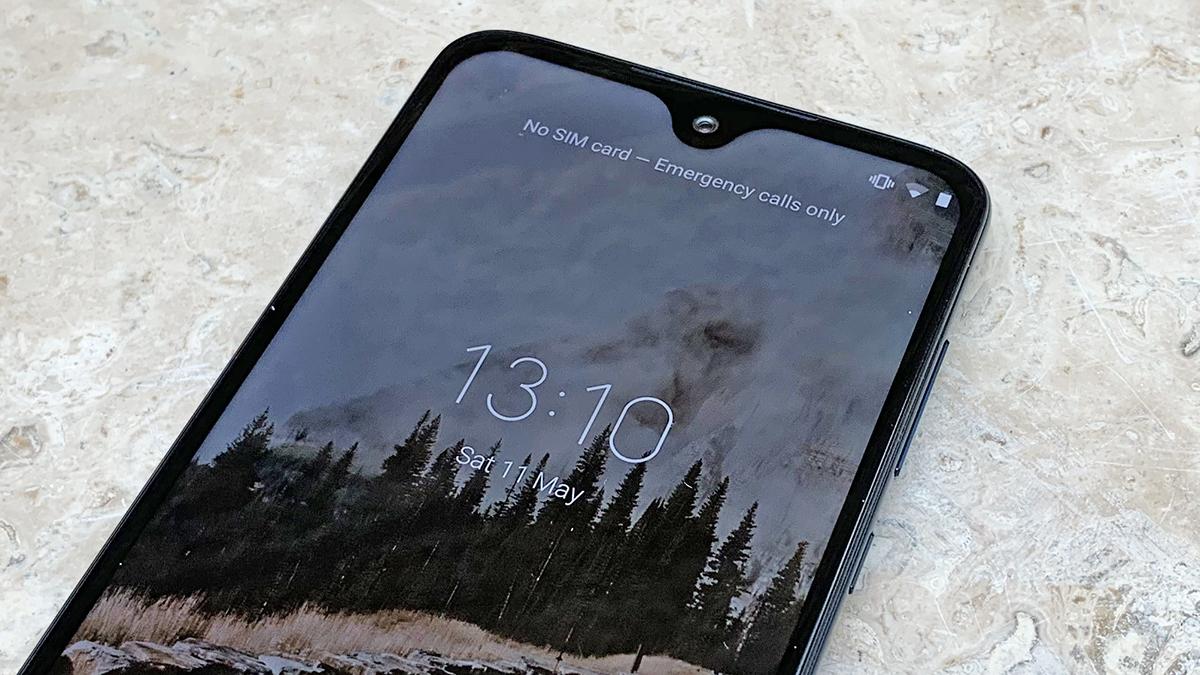
Motorola has done a nice job of minimizing the bezels – there's a thin chin at the bottom of the phone and a small teardrop notch at the top. We're fans of the design and the aesthetics of the Moto G7 Plus, and if you were just looking at it laying flat on a table, then you could easily mistake it for something much more expensive.
That bottom chin does feature the Motorola branding, which some might find off-putting, but it's done very subtly and didn't bother us in our time with the G7 Plus – it's not something that jumps out or really distracts from the screen.
You've got volume and power buttons on the right, a SIM card slot on the top, and a single speaker grille and a 3.5mm headphone jack down at the bottom. Power and connectivity is provided by a USB-C port. On the back there's the fingerprint sensor (with a Motorola logo on it) and the dual-lens camera, of which more later.
It's not the most inspiring design we've ever seen – and the rather drab preset wallpaper doesn't help here, so you'll probably want to change it – but for a phone that's going to cost you less than £300 up front, we'd say it hits the spot. For a bit more flair, consider the Viva Red option, rather than the Deep Indigo (almost black) model we're reviewing here.
Moto G7 Plus review: specs and power
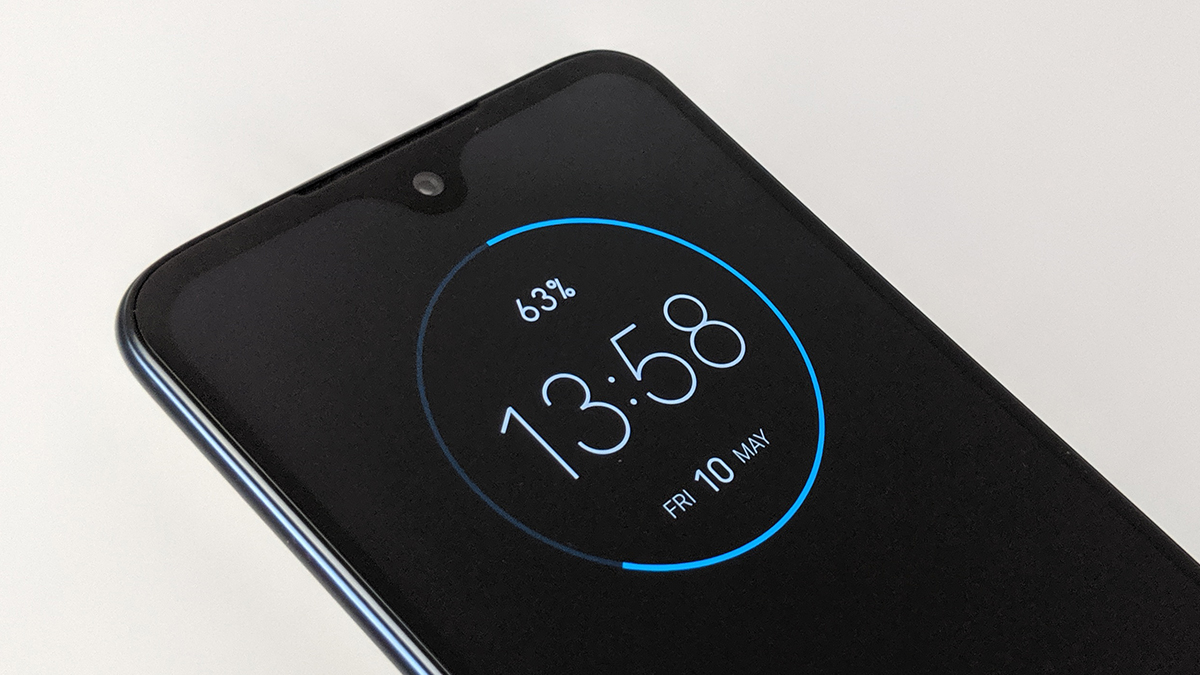
When you're shopping at the budget end of the market, it's usually the internal specs where most of the cost-cutting measures happen, and so the Snapdragon 636 processor is to be expected at this price point.
It's the same processor you can find in phones like the Nokia 6.1 Plus or the Moto Z3 Play: it won't set any benchmarking records, and apps might take a few moments longer to open than they do on a top-level phone like the Google Pixel 3 XL, but this phone is still going to do just about everything you want it to.
The Moto G7 Plus was capable of running the latest Asphalt racing game and several other demanding titles without a hitch, so the slower processor isn't going to hamper you too much. With the obvious caveat that we've been testing a brand new phone, we didn't notice any hiccups or lag in performance.
The 4GB of RAM and 64GB of storage space is actually quite generous at this price point – the aforementioned Pixel 3 XL gets by with 4GB of RAM too. With lower storage options, we always recommend getting a phone that lets you pop in a memory card, and that's the case with the Moto G7 Plus.
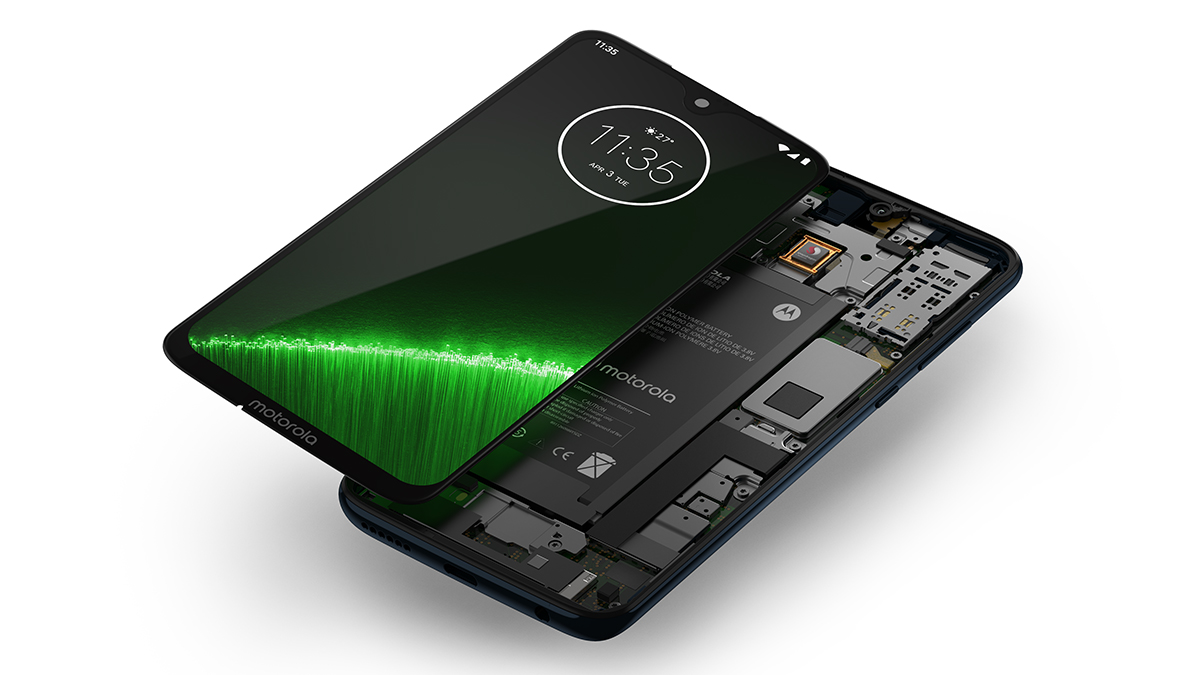
Putting the G7 Plus through its GeekBench paces shows a phone that is significantly off the pace when compared with handsets higher up the price scale, but it terms of bang for buck you're still getting a good deal. When you're using chat apps, browsing the web, snapping photos, or doing all the standard phone stuff, you won't really notice the difference.
We can't speak to what the phone might be like two or three years down the line, but it's simple silicon physics that a phone with a slower processor isn't going to last you as long as one with a faster processor. That said we think the Moto G7 Plus has got plenty of life in it and should serve you well for several years, if needed.
Based on the time we've spent with the Moto G7 Plus, we've found it snappy and responsive enough for everything you're going to be doing with it, with minimal lag and zero crashes. Loading times might occasionally take a little longer than you would expect, and you might have to put up with lower frame rates in games than on other phones, but there are no major problems.
Note that the Snapdragon 636 is a slight step up from the Snapdragon 632 that you'll find in the regular Moto G7. If you're trying to choose between these G7 phones, bear in mind that the G7 Plus is going to give you a little more oomph.
GeekBench 4 Benchmarks - Moto G7 Plus

[CPU test]
Single-core: 1,330
Multi-core: 4,949
[Compute test]
RenderSript Score: 4,307
[Battery test]
Battery Score Estimate: 3,800
Moto G7 Plus review: camera
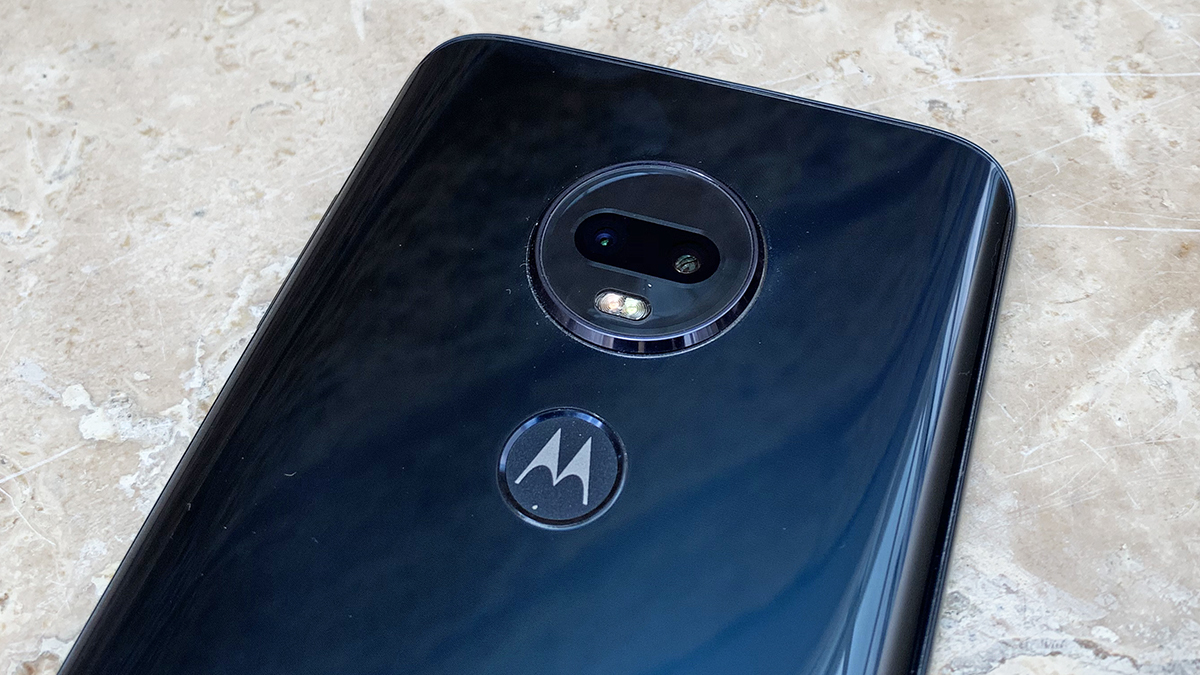
Motorola is pushing photography as one of the key selling points of the Moto G7 Plus, and we have to say we were impressed with that the phone had to offer in the camera department. Generally speaking, the cameras on this phone will serve you well.
Is the 16MP+5MP rear camera as good as something you'd get on the latest Apple, Google or Pixel flagship? No, no it isn't – and when the Pixel 3a is selling for just £399, that might be a problem for Motorola. But by and large you're going to get very usable shots from the Moto G7 Plus.
As ever, bright and well-lit shots come out the best, with plenty of detail and rich colours. We went out with the G7 Plus on a particularly drab and overcast day, but the resulting images were still very decent indeed – good enough to post to social media or even hang on the wall, in some cases.
When the light goes down, the noise and blur goes up: the Moto G7 Plus struggled with very dark scenes, though typically was always able to get something captured. In semi-darkness, where you've got at least one or two low light sources, it can get reasonable shots.








Whether it's the kids on the beach or your mates in the pub, we don't think you're going to find many situations where the Moto G7 Plus lets you down. The HDR mode seemed a bit hit and miss to us, and didn't always get a perfect mix of colours and detail – but the bottom is, if you want a best-in-class camera, get a flagship (or... erm... the Pixel 3a).
The built-in optical image stabilisation (OIS) is very welcome, and should reduce camera shake and image blur as much as possible. We didn't notice it too much in our testing, but it's nice to have. The Moto G7 also throws in a number of neat shooting modes and filters which are fun to play around with, including a cool spot colour one that works well.
Around the front, the 12MP selfie camera is unspectacular but completely adequate, and the Moto G7 Plus can even do that neat trick of lighting up the whole front of the screen so you can use it as a flash, if needed.
Recorded video looks great, with 4K recording possible – and that integrated OIS comes in handy here as well. You're going to get images and clips from the Moto G7 Plus that belie its sub-£300 price, and that's really all you can ask for.
Moto G7 Plus review: software and features
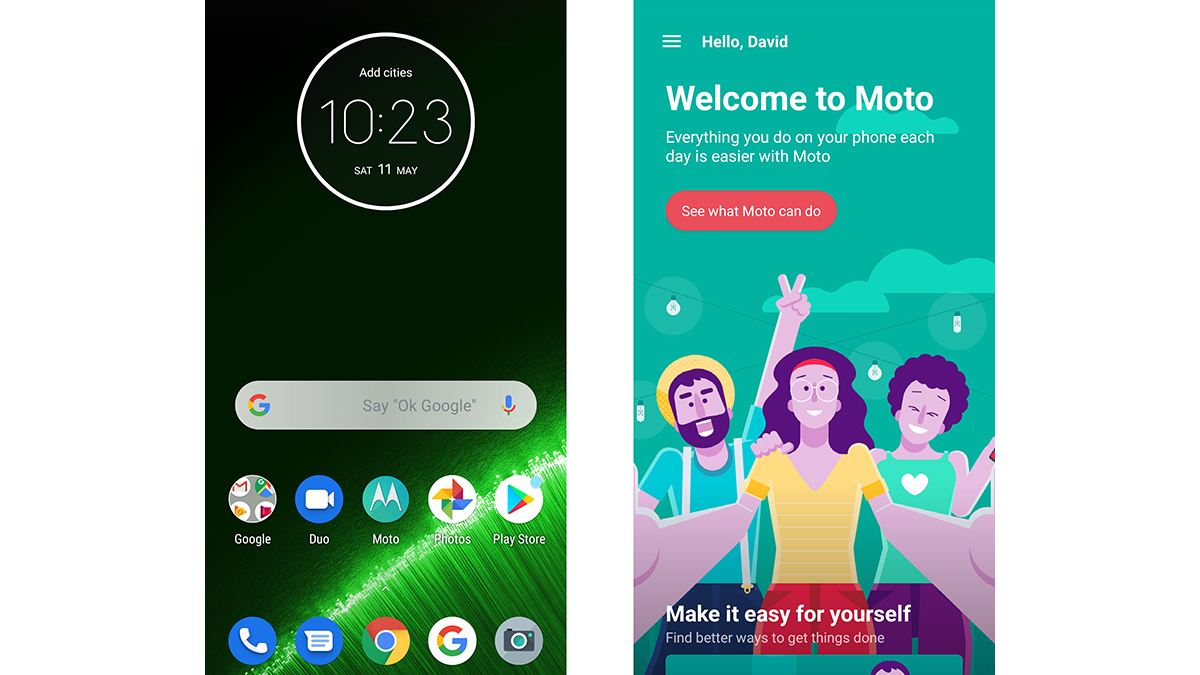
Thankfully, Motorola doesn't mess too much with the stock Android experience. A single swipe up gets you to the app drawer, for example, and preinstalled apps are limited to a couple of utilities for tech support and teaching you how to use the phone.
The bundled Moto Actions (for controlling apps with gestures) and Moto Voice (for reading out your texts while you're driving) aren't going to change your life, but they're fun to play around with if you want to do a bit more with your handset. We like the way Motorola stays out of the way of Android though, and all the key Google apps are available on the phone right out of the box.
The Moto G7 Plus does have its own custom time and date widget, which is inoffensive enough and doubles up as a battery meter. This widget also appears on the lock screen when you lift up the phone to look at it, so checking the time of day is easy enough.
The latest Android 9 Pie is on board here, as you would expect, but how quickly you'll get Android Q, dark mode and all, remains to be seen – the Moto G6 phones got their Android 9 Pie updates a month or so ago, so it looks like you could be waiting a few months at least. Still, with most of the OS updates now behind-the-scenes tweaks and under-the-hood improvements, it's not as big of an issue as it once was.
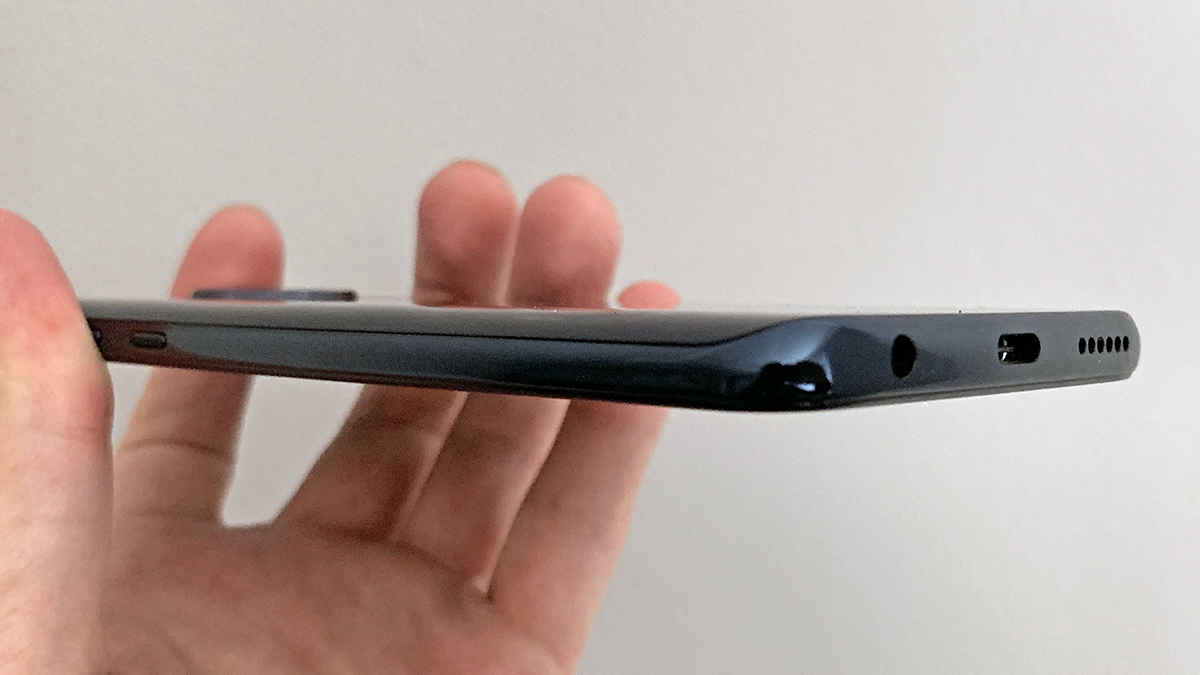
You don't get waterproofing on the Moto G7 Plus, but you do get a thin water repelling layer, which is about as good as you're going to get at this price level. It won't survive a dunking in the washing up bowl, but it should survive a little bit of rain.
Dolby Audio is included, for apps that support it, and we were impressed with the audio performance of the phone overall: dialogue and background music is loud and clear when watching videos for example, and at a push you could even use the Moto G7 Plus as a makeshift boombox to fill a small room with music.
You do get 27W fast charging that Motorola says can juice up your phone with 12 hours of power in just 15 minutes – and that seems about right in our tests. We did the usual T3 test of watching Netflix for an hour at maximum brightness and a reasonable volume level, and the 3,000mAh battery went down from 100 percent to 83 percent: that's a little below par, but equals all-day battery life.
In our time with the Moto G7 Plus we very rarely had less than 20 percent battery left at the end of the day, though admittedly we weren't hammering it with use either. For a huge 5,000mAh battery the Moto G7 Power is one alternative to consider.
Moto G7 Plus review: verdict
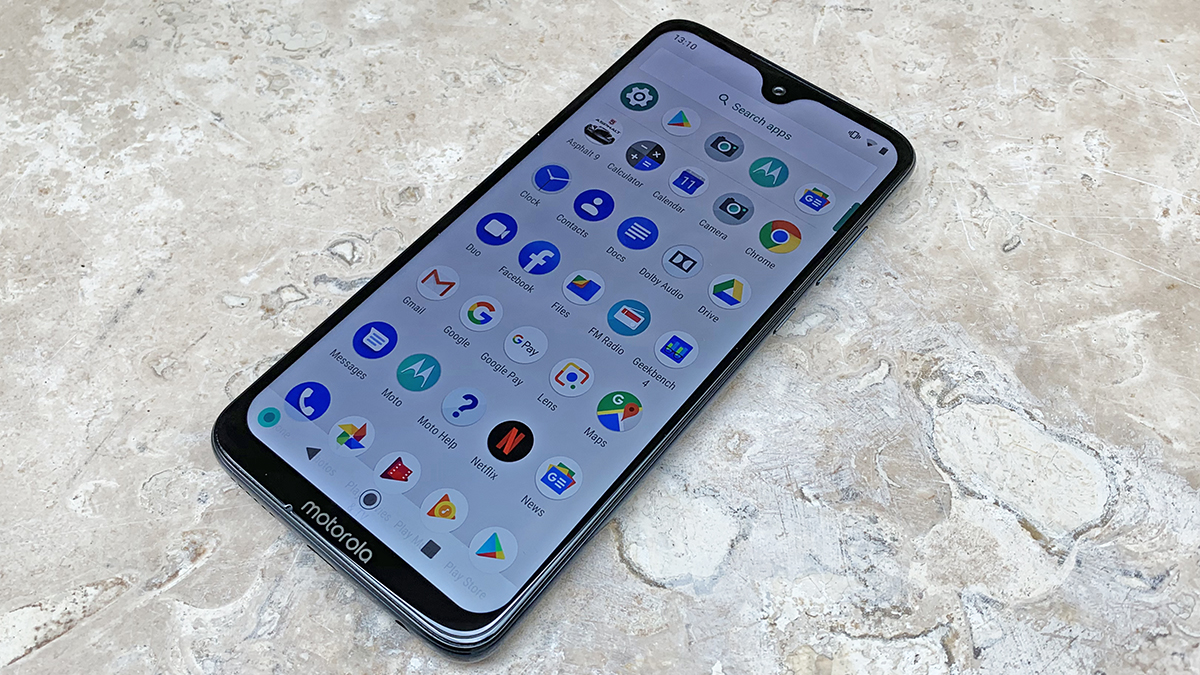
From almost every angle – design, performance, camera – the Moto G7 Plus gives you a lot for your £270 (or whatever you end up paying). It certainly punches above its weight in terms of what it can do and the features it offers, even if you're never going to mistake it for a genuine flagship.
So far so good for the Moto G7 Plus then, but the competition is getting stronger. We've already mentioned the Pixel 3a – another £100 or so extra, but with a fantastic camera – and the likes of Honor and Nokia are putting Motorola under more pressure at the budget end of the market.
All that said, we're struggling to think of a phone that's priced this low that is this impressive. You don't get bells and whistles like IP68 waterproofing or wireless charging, but you do get a phone that's going to do everything you need it to very well indeed.
- These are the very best phones in the world right now
Dave has over 20 years' experience in the tech journalism industry, covering hardware and software across mobile, computing, smart home, home entertainment, wearables, gaming and the web – you can find his writing online, in print, and even in the occasional scientific paper, across major tech titles like T3, TechRadar, Gizmodo and Wired. Outside of work, he enjoys long walks in the countryside, skiing down mountains, watching football matches (as long as his team is winning) and keeping up with the latest movies.
